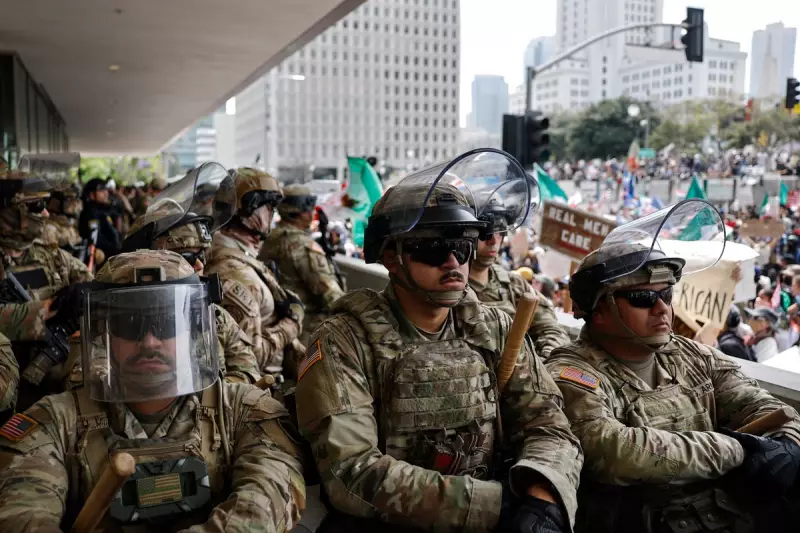
In a bombshell revelation that is set to inflame the US immigration debate, former President Donald Trump allegedly pushed for an extreme and legally dubious plan: the mass deployment of the National Guard to detain and remove undocumented migrants from American cities.
The Independent reports that Trump's focus was squarely on major urban centres run by Democratic mayors, a move critics are calling a blatant political stunt that would test the limits of presidential power and states' rights.
A Constitutional Firestorm
The most contentious aspect of the alleged proposal is its targeting of so-called 'sanctuary cities'—municipalities that limit their cooperation with federal immigration enforcement. Legal scholars were quick to highlight the monumental constitutional hurdles. Deploying state National Guard units for domestic law enforcement, against the will of a state's governor, would likely trigger an unprecedented legal battle over the Insurrection Act and the Posse Comitatus Act.
Such an action would represent a dramatic federal overreach into local jurisdiction, creating a direct confrontation between the White House and state governments.
Echoes of Texas' Controversial Operation Lone Star
Trump's reported scheme appears to mirror the aggressive approach taken by Texas Governor Greg Abbott. Under Operation Lone Star, Texas has bused thousands of migrants to Democrat-led cities like New York and Chicago, a policy designed to protest federal border policies and shift the logistical burden.
However, Trump's proposed solution goes far beyond busing. The direct use of military force for domestic immigration enforcement would mark a radical escalation, venturing into uncharted and dangerous territory for American democracy.
Political Fallout and Future Implications
This revelation is not merely a historical footnote. It provides a stark preview of the hardline immigration tactics that could define a potential second Trump term. The proposal underscores a willingness to leverage federal power in extraordinary ways to achieve political objectives, setting a potentially alarming precedent for governance.
As the 2024 election cycle heats up, this story is certain to become a central flashpoint, fuelling debates over executive authority, civil-military relations, and the very rule of law in the United States.





